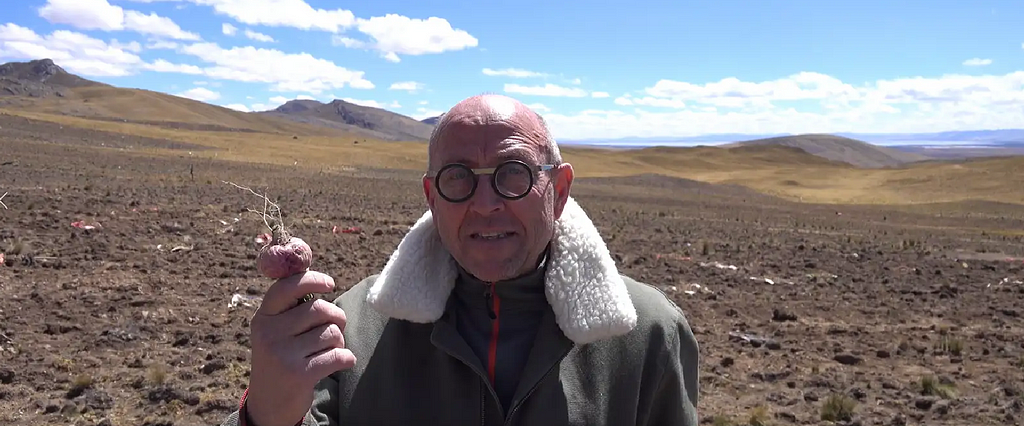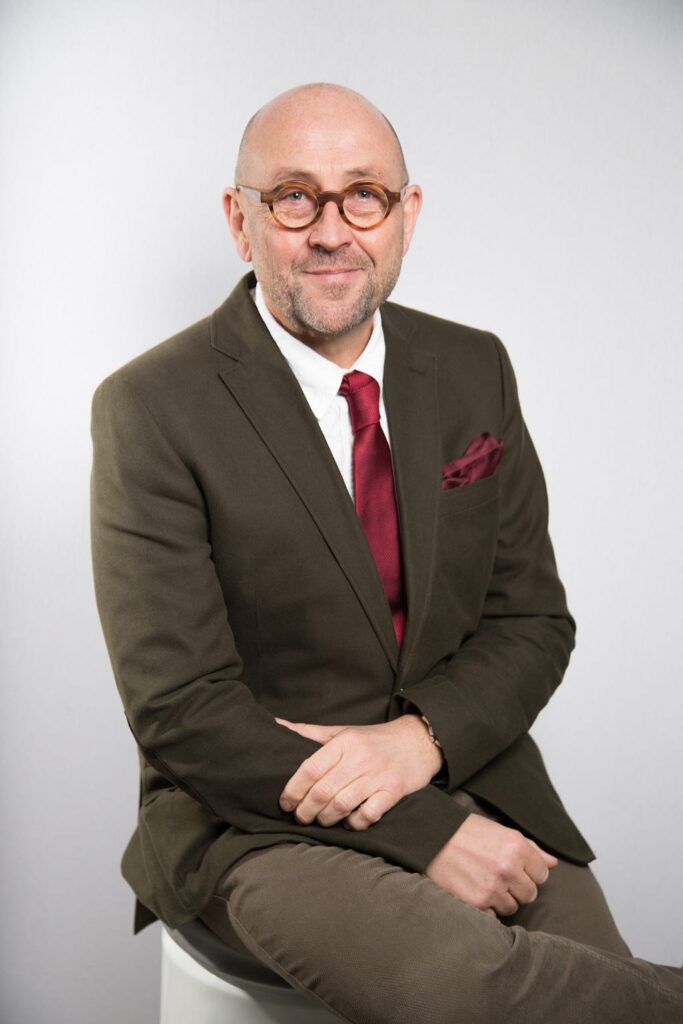An Interview With Stanley Bronstein
“If you believe in it, go for it.” When I started out, I was pretty much told not to do this. I found that sometimes you have to break away from the consensus to thrive
As part of my series about “individuals and organizations making an important social impact”, I had the pleasure of interviewing Olivier Fahy.
Olivier Fahy is the Chief Executive Officer (CEO) of Groupe Berkem, a leading supplier of sustainable, plant-based ingredients. With more than two decades of experience in the natural products and sustainability sectors, he has been instrumental in steering the company’s growth and expanding its footprint across key industries including nutraceuticals, cosmetics, and construction. Under his leadership, Berkem reached €40.4 million in revenue as of September 2024, a milestone that reflects his strategic focus on plant-based chemistry and long-term innovation.
Thank you so much for joining us in this interview series! Can you tell us a story about what brought you to this specific career path?
There was no specific vocation or any pre-established long-term vision. I didn’t have a mission or a cause in mind to defend. In reality, I’m more of an opportunist in the positive sense of the term: I’ve always been able to seize the moment, identify favorable contexts and assess the environment. I move forward because things line up, intuition pushes me, or an encounter or a gap in a market moves me to act.
What has always guided me are professions focused on innovation. I do not necessarily mean high-tech or ground-breaking, but professions that require a common technical intelligence that is shared and built with talents from diverse backgrounds, a dose of anticipation, and a certain appetite for risk. Above all, I believe in the need for freedom of action. I’ve never been a fan of overly rigid structures.
Ultimately, that’s how I have made my way: by moving ahead, building as I went along, driven by the desire to make things concrete and the curiosity to ask “Why not?”
Can you share the most interesting story that happened to you since you began leading your company or organization?
There are many, but one that comes back to me most is when we sold one of the Group’s highly profitable businesses. It was a strategic decision, but also a very challenging one. I chose to sell what was then our economic core, with a clear objective: To reduce the debt resulting from the leveraged buy-out and realign the company with a long-term vision.
Some people thought I was crazy. Some employees left, and some customers doubted. But I was convinced that this decision — risky as it was — would liberate the Group. And that’s exactly what happened: In less than two years, we grew by 75% in sales and almost 30% in profitability.
That was a decisive moment. It confirmed to me that managerial courage and strategic clarity can move mountains, even if the price to pay at the time seems high.
It has been said that our mistakes can be our greatest teachers. Can you share a story about the funniest mistake you made when you were first starting? Can you tell us what lesson you learned from that?
I don’t know if you can call it “funny” in absolute terms, but there are times when, looking back, you smile at your own naivety. When I started out, I had this tendency — which many beginners share — to believe that things would go according to plan. Why? Because the contract was signed, the project was launched, and “everything was all set”.
One mistake I made was to underestimate the capacity of how quickly things can change and become more complex. I sometimes promised a little too early, or committed resources before checking all the links in the chain.
What did I learn? Over-enthusiasm can be a trap. And in entrepreneurship, you have to keep a cool head, even when you really want it to work.
Can you describe how you or your organization is making a significant social impact?
If I look at things honestly, I would say my role has sometimes been to trigger desires, to make projects possible for others.
This could be signing a first contract with someone who hasn’t produced anything yet; trusting where others would have waited. By taking a measured but real risk, you create an impetus. And on several occasions, I’ve seen people transform this impetus into a business, a career path, or greater autonomy.
My social impact probably lies in these invisible nudges — the little help that can boost fate, that enables people to take the plunge, to structure themselves, to believe that something is possible.
Can you tell us a story about a particular individual who was impacted or helped by your cause?
It’s not a single story, but many. In reality, entrepreneurship is about co-construction. It’s about shared moments, and sometimes minuscule boosts that change someone’s trajectory.
I’m thinking of the plant collector we worked with in Champagne. From my point of view, he was just another supplier. But in reality, unbeknownst to me, he had built a solid business, recruiting, investing, and structuring his company. He turned a simple opportunity into a strategy for growth.
When I discovered this, I felt a mixture of surprise and gratitude. That’s when I said to myself: This is why we do this job. Because we trigger dynamics; we make things possible. We enable others to dare.
Are there three things the community/society/politicians can do to help you address the root of the problem you are trying to solve?
a. Trust the economic world. Stop believing that businesses are only motivated by short-term profit. Many entrepreneurs want to act but are blocked by bureaucratic constraints.
b. Reduce bureaucracy to enable grassroots innovations to emerge more quickly. Today, administrative inertia is holding back projects that could have a real impact, particularly in biotechnologies, bio-based solutions and agronomy.
c. Build bridges between public research and industry. There is an incredible wealth of scientific knowledge out there, but it is too often disconnected from the business world. We need to facilitate greater connections between the two.
How do you define “Leadership”? Can you explain what you mean or give an example?
Leadership is the ability to embody a vision and create a movement around it. It’s about alignment: Between what you think, what you say, and what you do.
When I decided to sell a key part of the company to pay off our debt and reorientate ourselves, I lost a number of employees. It was difficult. But I stayed the course, explained and listened. And those who stayed did so because they believed in the project.
And today, we can see the results. That’s what leadership is all about: making the right, fair choices, even when they’re uncomfortable. And being able to bring others along for the ride.

What are your “5 things I wish someone told me when I first started” and why. Please share a story or example for each.
a. “If you believe in it, go for it.”
When I started out, I was pretty much told not to do this. I found that sometimes you have to break away from the consensus to thrive.
b. “Don’t look too far to the side.”
Comparisons slow you down more than they stimulate you. Focusing on your own path and direction are what counts.
c. “Your path will never be mapped out.”
Accept the chaos, the improvisation, the twists and turns. It’s not failure, it’s the norm.
d. “You’re legitimate as long as you act.”
Imposter syndrome is just a reflection of fear. If you get the job done, you are legitimate.
e. “Surround yourself with people who are demanding but caring.”
The right entourage is your best investment. The brilliance of solitude is a long-standing illusion.
You are a person of enormous influence. If you could inspire a movement that would bring the most amount of good to the most amount of people, what would that be? You never know what your idea can trigger. 🙂
I don’t see myself as a person of influence. That’s not the point. But if I could inspire a movement, it would be that of active listening. Because it’s the starting point for any human, social or entrepreneurial transformation.
Listening reduces misunderstandings, eases tensions and creates links. In a world that runs, zaps and reacts more than it thinks, listening becomes a revolutionary act. It’s simple, but powerful.
Is there a person in the world, or in the US with whom you would like to have a private breakfast or lunch with, and why? He or she might just see this, especially if we tag them. 🙂
Two people come to mind right away:
Christine Lagarde, for one. I find her remarkable in the way she deals with complexity. Her calm, her precision, her ability to remain constructive in a storm are without parallel. I’d like to understand what she thinks, and what she feels in those moments of maximum tension.
George Soros. Not because I agree with everything he does or believes, but because of his fascinating career. He has blended intellect, finance and commitment like few others. And I’d like to ask him a question: At what point did you realize that you could have a real impact on history?
This was very meaningful, thank you so much. We wish you only continued success in your great work!
About the Interviewer: Stanley Bronstein is an attorney, CPA, and author of more than 20 books. However, he doesn’t consider any of those his greatest achievement. His most significant accomplishment was permanently losing 225 pounds and developing the personal growth system that made it possible — The Way of Excellence. As a catalyst for change, he has dedicated his life to helping others maximize their potential, transform their lives, and achieve optimal health. To learn more, you can download a free PDF copy of his latest book, The Way of Excellence Journal, at https://TheWayOfExcellence.com.
Social Impact Heroes: Why & How Olivier Fahy of Groupe Berkem Is Helping To Change Our World was originally published in Authority Magazine on Medium, where people are continuing the conversation by highlighting and responding to this story.
